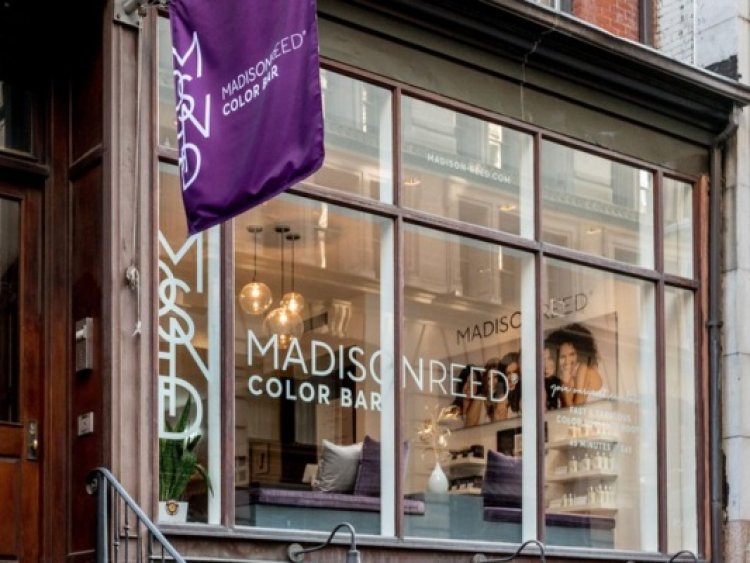Madison Reed, which made DTC hair color a thing, is now going after larger retail footprint
Buoyed by a new $33 million investment, plans are in the works to add another 20 hair color bar locations and hire 850 new colorists by the end of the year.

Madison Reed proved that women will buy hair color online, but over the years, the company, founded by Amy Errett, opened more than 60 hair color bars across the country, established a wholesale presence with Ulta and later got in on Ulta’s deal with Target while also operating website and Amazon sales.
We last checked in on Errett two years ago, when she discussed Madison Reed’s hair color bars, how the pandemic affected the business and a possibility of creating a men’s color category.
Now with both the direct-to-consumer, national retail and hair color bars doing well, the eight-year-old company wants to establish even more of a local relationship with customers by expanding the number of color bars it operates across the country and having a presence in retailers where they typically shop. At the color bars, the hair color is applied by a licensed professional more quickly and more cost-effectively than traditional salons, the company said.
“I have been doing this for a while, and I don’t believe consumer brands can solely be in one channel and succeed,” Errett told TechCrunch. “We are serving the consumer, and they shop everywhere. We realized we need to follow where the customers are, and then our business exploded.”
Buoyed by a new $33 million investment, plans are in the works to add another 20 color bar locations and hire 850 new colorists by the end of the year, Errett said. She forecasts the company will have 100 stores by 2023. The company is targeting areas including New York, South Florida, California, Chicago, Washington, DC and Texas.
The new financing, which gives Madison Reed some $250 million in total funding to date, was led by Sandbridge Capital, with participation from Marcy Venture Partners.
Errett described the funding as “very opportunistic” because the company was now actively raising money, but as she got to know Sandbridge, which is an investor in beauty companies like ILIA Beauty and Youth to the People, she felt they understood the consumer and the market. Same with Marcy Venture, Jay-Z’s fund, which invested in Savage X Fenty — also known as singer Rihanna’s company — and is tapped into media channels.
“We are excited to have both of them on board,” she said.
In addition to the new color bars, Madison Reed will invest the new financing in additional product launches; unfortunately, Errett stayed mum on what those were, but we can only assume that the men’s color might be back on the table.
“We already had capital in the bank, but this gives us the arsenal to keep our head down and execute. This is now where the rubber meets the road,” she added.
Meanwhile, Errett said there was more opportunity out there for the global hair color industry, which is expected to be valued at over $40 billion in 2023. Within that sector, it was estimated that 40 million Americans used permanent color hair coloring products in 2020.
As such, Madison Reed saw its gross product margins grow to over 80% and revenue double over the past two years. Errett believes the company has made a dent in the at-home market and is now starting to gain market share in the salon market.
Meanwhile, in March, Madison Reed hired Jose Zuniga as its CFO. Zuniga was previously with Dollar Shave Club and is leading the company’s omnichannel expansion.
“We were focused on finding someone with a consumer packaged goods background, but not the traditional way of doing it,” Errett said. “Dollar Shave Club disrupted an industry no one was paying attention to. As I got to know Jose, he understood the financial model, understood retailers shelves and had the content skills. We thought he would be a wonderful culture fit.”







